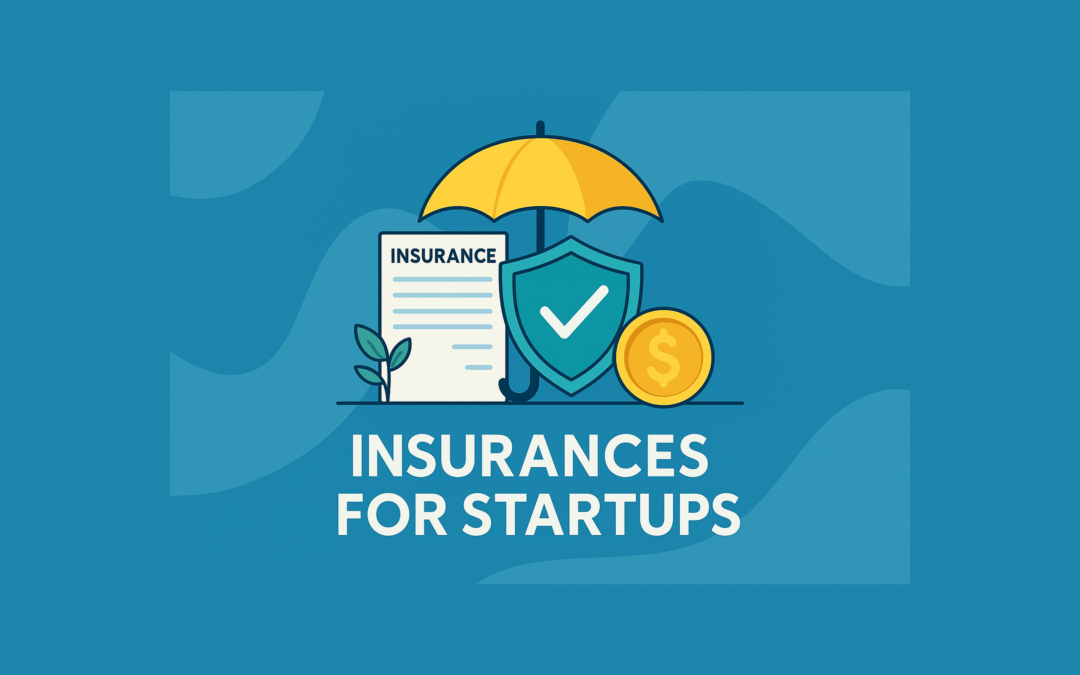Risk Management for Startups: Essential Insurance for Founders
Anyone who wants to set up their own business is also taking a personal and financial risk. The budget is also usually tight in the initial phase. Nevertheless, there are things you should not ignore. After all, small mistakes in particular can be very expensive without adequate cover and may even threaten or destroy the existence of your company. Not only economic factors can have a negative impact on your start-up, but sudden illnesses of the founders or key employees can also ruin your painstakingly built company in no time at all.
However, there is a suitable insurance policy for every risk, big or small, with which founders can protect themselves against financial losses. But what do I need to insure? What should I insure and what can I insure? We are supported by Willi Fallot-Burghardt, insurance broker and expert when it comes to protecting against risks.
Anyone wishing to obtain individual information can contact Willi Fallot-Burghardt here.
Video 1: Introduction to the topic
Video 2: Insurances: Existential risks
Video 3: Insurances: Existential and neutral risks
Further informations
Further Information on the Topic: “Insurance for Startups”
10 Types of Insurance Every Founder and Startup Needs (2022)
The 7 Most Important Insurances for Startups
8 Essential Insurances for Startups
Selected Insurances Under the Microscope
Information and Details on Cyber Insurance
Legal Expenses Insurance for Founders – What You Need to Know
Liability Insurance: If You Cause Damage, You’re Liable
Contents Insurance: Protection for Self-Employed Entrepreneurs
Guest Article: D&O Insurance for Startups – A Key Element in Risk Management
Income During Illness: Disability Insurance for Founders
What Falls Under Property Insurance?
Downloads:
📍Guide: Insurances for selfemployed Startup-founders
📍Guide: Insuranceguide for Startups
Download: https://seafile.rlp.net/d/f2b9a5e2108a41d5b283/
FAQ - Frequently asked questions
Why is independence a unique selling point for insurance brokers?
Many participants ask themselves, “Why is this emphasized so strongly?” Independent advisors or providers have the advantage of not being tied to specific products or companies. This allows them to better tailor insurance coverage to the actual needs of the startup instead of selling pre-packaged deals.
What does the principle of solidarity mean in practice?
The principle of solidarity means that many people pay in so that a few are covered in the event of a claim. For founders, this means that even with small contributions, they receive protection against risks that they could not bear financially on their own.
How do I recognize which risks are really relevant for my startup?
Founders often ask themselves, “Do I have to insure myself against everything?” No. It is important to rank the risks according to their severity. Risks that could destroy a business (e.g., liability, fire, serious cyberattacks) always come first because, in the worst case, they can ruin the entire company.
What are risks that could destroy a business—and why are they so important?
These include liability claims, fire and natural hazards, cyber attacks, director and officer liability (D&O), and serious illness. They can directly threaten the survival of the company or its founders. That’s why early insurance coverage in these areas is crucial.
How does an existence-threatening risk differ from an existence-threatening risk?
Existence-destroying means that the damage is so great that without insurance it would spell the end of the company. Existence-threatening means that the damage is serious, but can possibly be covered by reserves or short-term assistance (e.g., vandalism or machine damage). Nevertheless, insurance coverage is also advisable here in order not to jeopardize liquidity.
What role does liability insurance play for startups?
Liability insurance is basic coverage. It protects against damage caused to third parties—for example, if a product is defective or a customer is harmed by your service. Without this coverage, even a single claim can be devastating.
As a startup, do I also need to consider cyber insurance?
Many founders believe that cyber risks only affect large companies. In fact, small businesses and startups are often more vulnerable because their security measures are less sophisticated. Cyber insurance can help mitigate the consequences of data loss, hacker attacks, or business interruptions.
What does directors and officers (D&O) insurance cover?
This insurance protects managing directors and board members from personal liability for wrong decisions. This is relevant for startups because even minor oversights (e.g., in contracts or financial planning) can have personal consequences for management.
How do I determine the right insurance needs for my company?
The most important question is: “What risks would financially overwhelm us in the event of a claim?” Only when these are clear can you choose the right insurance policies. A three-step risk analysis helps: 1) Identify risks, 2) Assess severity and probability of occurrence, 3) Prioritize insurance needs.
How often should I review my insurance coverage?
Since startups change quickly, it makes sense to review your insurance at least once a year—or whenever something fundamental changes (e.g., more employees, new locations, new products).

Hi, i'm Lukas
and I manage the e-learning program. Do you have any further questions? Feel free to contact me via email: theisen@gruendungsbuero.info

